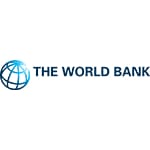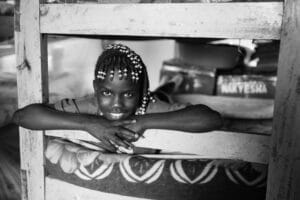Enhancing Early Childhood Development in Madagascar
SUMMARY
We, alongside the Government of Madagascar and the World Bank, designed behavioral interventions to improve the Early Childhood Development (ECD) outcomes of a child-focused cash transfer program. These interventions, including group formation (“Mother Leader Groups”), plan-making, and self-affirmation activities. Mothers that received the behavioral interventions fed their children a more diverse diet, and reported more interactions with their children, while also reporting lower food insecurity. Their children also performed significantly better on tests of socio-cognitive development than children in the ‘Cash only’ arm.
The Challenge
Madagascar, one of the world’s least developed countries, has very low human development outcomes. The Human Development Cash Transfer Program is the Malagasy government’s flagship program intended to tackle this problem by providing child-focused bimonthly cash grants to mothers of young children. However, cash is often spent on people’s pressing, immediate needs as opposed to child development. Our project investigated whether augmenting the cash with behavioral interventions could improve its impact on child development and antecedent behaviors and outcomes.
Our Approach
We designed a suite of behavioral interventions, including group formation (“Mother Leader Groups”), plan-making, and self-affirmation activities. These were then rolled out during cash transfer days by trained enumerators. Program participants were randomized into three treatment groups and a control group, clustered at the village level, in order to test the effect of the interventions using an 18-month-long cluster-randomized RCT.
Results
Approximately 18 months into the implementation of these interventions and 20 months since baseline, the study finds evidence that parents in two of the three behaviorally enhanced arms undertook a significantly larger number of the three targeted positive parenting practices than parents in the cash-only arm. Households in both the “Mother Leader” arm and the “Mother Leaders and Affirmation” arm show significant positive differences in overall child development as measured by the Malawi Developmental Assessment Tool (MDAT), as adapted to the Malagasy context. Households in the behaviorally enhanced arms report experiencing significantly fewer dimensions of food insecurity over the past seven days, with the effect generally being the largest for those in the Cash + Mother Leaders arm.
Takeaway
The results demonstrate that behavioral interventions can improve the impact of cash transfer programs beyond immediate outcomes like food insecurity or dietary diversity, as well as close gaps in socio-cognitive development for children from the most disadvantaged families.
Interested in our work applying behavioral science to global development? Email info@ideas42.org, follow us on LinkedIn, or tweet at @ideas42 to join the conversation.
Partners










